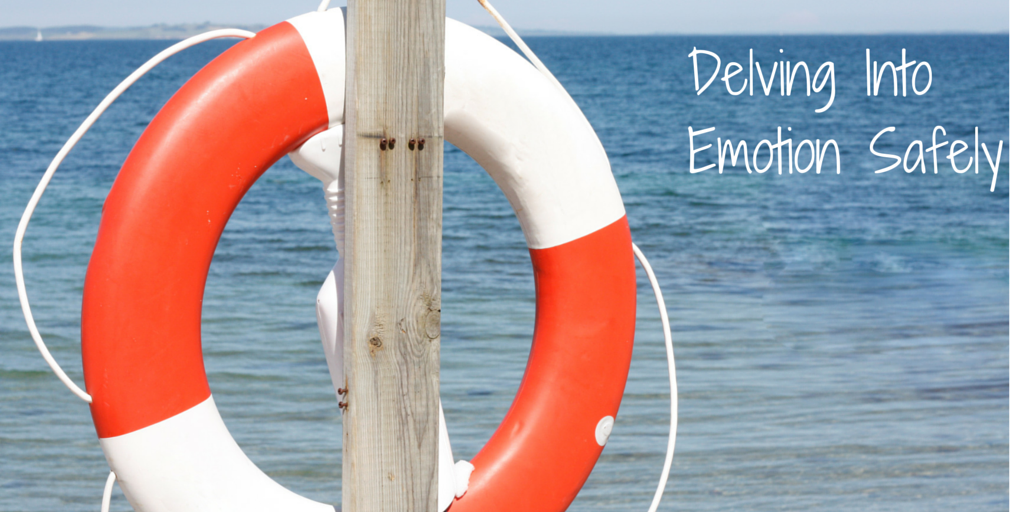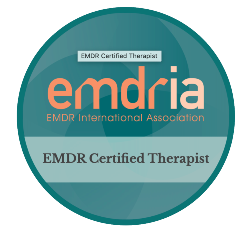Exploring difficult emotions
Worried about beginning counseling for fear of dredging up unpleasant memories? Unfortunately, many people miss out on the benefits of trauma counseling due to bad experiences with previous therapy, or anxiety about what it will be like to explore difficult memories. Furthermore, people who have a bad experience opening up with overwhelming difficult emotions, particularly that they don’t have the tools to handle, are more likely to drop out of treatment prematurely. There are specific therapies, such as EMDR therapy, that can help, but knowing how to delve into difficult emotions safely is the first step.
The good news is that there are many practices that can lead to improved management of difficult emotions, hence helping one to develop a greater ability to tolerate the emotional aspects of trauma counseling. Here are just a few:
- Identify a list, even if short, of people you can call in a time of crisis. Even if you don’t need to call them, reminding yourself each day that they are there can be tremendously comforting.
- Choose a mantra to focus on each day. Think of some positive self-statements and list them. For example, “I am strong and capable.” Each day, choose one to recite to yourself for encouragement.
- Know your triggers. Identify triggers that tend to throw you off and know which ones you are likely to encounter each day.
- Identify your resources. Knowing your strengths and source of those strengths is important in the healing process. There are two types of resources: internal resources and external resources. Internal resources are sources of strength such as the memory of a time you were proud of yourself, the feeling you get when being involved in a hobby you enjoy, spirituality, a career you enjoy, qualities of your personality of which you are proud. External resources, on the other hand, are sources of strength that come from the community such as supportive friends or family, pets, church, co-workers, and role models.
- Learn tools for grounding and practice them daily. Understanding what to do to keep yourself grounded is helpful, but only if can access those tools readily. Keep track of the times you successfully use your tools to regulate emotion. Here are a few tools that may be helpful:
- Breathing exercise. Breathing exercises abound, but there is a reason they are so popular—they work! Breathing exercises increase blood flow to the brain, engaging a calming response and better accessing of the portion of the brain responsible for reasoning. Try pausing for a second at the top of the breath (after inhaling) and at the bottom of the breath (after exhaling.) This invites a more mindful act of breathing and fosters good grounding in the here and now.
- Dual awareness. It is very difficult to maintain focus on a disturbing memory from the past or worry about the future, or even focus on difficult emotions, at the same time that you are focusing on the present moment. Next time you feel your anxiety or level of disturbance rise, try maintaining your awareness of those feelings at the same time that you are noticing the sensory experience taking place around you in this moment. What do you see? Feel? Hear? Smell? This will most likely create a reduction in the unpleasant feelings of worry or disturbance that arise from that past or anticipated future event.
- Doodling resources. It is great to have identified resources, but if you want an easy way to access the strength that comes from them, try doodling a picture of your resource. This will help you connect with the positive feelings you have identified with it and make it easier to access during a difficult time.
- Description. This exercise of describing an object can be done with either an object you can hold in your hand or a food item. If you choose an object, such as a rock, hold it in your hand and notice how it feels. How would you describe it? Is it heavy or light, smooth or rough? Does it have cracks or flecks of other color in it? If you choose food, such as a piece of chocolate, notice how it tastes, how it melts in your mouth. Notice the flavor and the creaminess. Be fully aware of all of your senses as you describe it. This is an excellent exercise in mindfulness that can be very soothing and help you to manage difficult emotions.
Trauma counseling can be life changing and finding a therapist who understands the challenges of the work is key. Ask your therapist about ways to create a safe internal environment for trauma work and let the healing begin. Remember that having the proper tools to manage the emotional emotions can make a tremendous difference in the experience.
Click here for more information on Anxiety Treatment.





